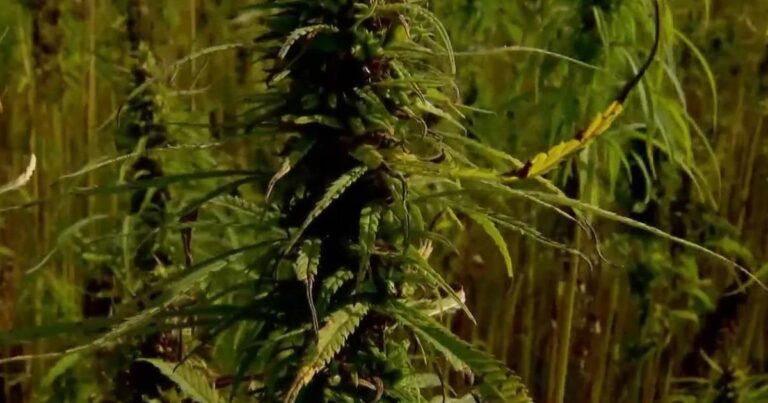SACRAMENTO — A ban on all hemp products containing “detectable amounts of THC” is in effect under an emergency order by Governor Gavin Newsom and the California Department of Public Health (CDPH). In response, the state is facing a lawsuit.
Retailers can no longer sell products made using hemp THC to California customers, including non-intoxicating CBD medicines used by millions of people across the state. Ta.
People who rely on CBD for medicine say the new emergency regulations are doing more harm than good and harming some of the state's most vulnerable populations.
Before the ban went into effect, CBS13 first interviewed the mother of a disabled child who takes CBD daily to calm her severe seizures.
Advocates added that California, home to the largest number of U.S. veterans, has been the hardest hit.
“This is hitting veterans disproportionately hard,” said Army and National Guard veteran Will Wisner. “Since 9/11, more than 150,000 veterans have died by suicide, while soldiers are dying by suicide at a rate of more than 22 per day. It’s a huge number.”
Wisner is executive director of the Grant Style Foundation, a California-based nonprofit that supports veterans.
“We hate to think that a decision like this could cost lives, but when people are in trouble, when they feel hopeless, they take drastic action,” Wisner said.
Like many veterans, he found CBD to be a great help on his long journey to physical and emotional healing after the war.
“I had to figure out how to take my health care into my own hands,” Wisner said. “I have to self-medicate with CBD. Luckily, CBD is very effective for my autoimmune disease and helps fight inflammation and pain.”
CBD advocates argue that the emergency regulations Newsom imposed on the hemp industry are too broad. They agree that industry regulation is needed, but argue that people who rely on non-intoxicating CBD products should not be penalized.
“So right now, access is completely cut off. Everything has been shut down for 180 days since the emergency order was issued,” Wisner said.
Six cannabis companies and a nonprofit organization are currently suing the California Department of Public Health, its director, and 50 anonymous “John Does.”
“This strict regulation alone would essentially destroy an emerging industry made up primarily of small business owners. This would be the same as requiring candy to stop containing sugar starting tomorrow. ” the complaint states.
Among the plaintiffs are star athletes such as Cheech and Chong. The comedy duo brought cannabis culture to Hollywood, and now Cheech Marin and Tommy Chong's cannabis company is among the companies opposing Newsom's new regulations.
“Overnight, the hemp and hemp products industry in much of California became immediately illegal,” the complaint says.
Governor Newsom hopes to crack down on the industry's bad actors in emergency regulations first announced at a press conference in Sacramento on September 6th. Newsom said too many people are taking advantage of the unregulated market and luring children with THC products marketed to youth through THC gummies, candy and drinks.
“This is a deliberate attempt to manipulate children. It's available everywhere. It's a gummy that is directly targeted at children. This is disgraceful and disgraceful,” Newsom said at a news conference.
“We're going to take it to the next level and make sure we're cracking down on it, especially to make sure young people are protected,” added California Health and Human Services Secretary Dr. Mark Ghaly.
But now, advocates are responding by turning to medicines for disabled children who rely on CBD, a product that contains only trace amounts of THC, that veterans like Wisner use every day to calm their seizures. What will happen to the access?
“It seems crazy to take away choices from us, no matter how well-intentioned,” Wisner said. “Frankly, this is insidious. We are currently toying with the lives of extremely vulnerable people who have come to rely on this natural, holistic healing method.”
CBS13 has reached out to both Governor Newsom's office and CDPH for comment on this matter. Both agencies responded that they do not comment on pending litigation.
The emergency regulations will come into effect on September 23 and last until March 25, 2025.

